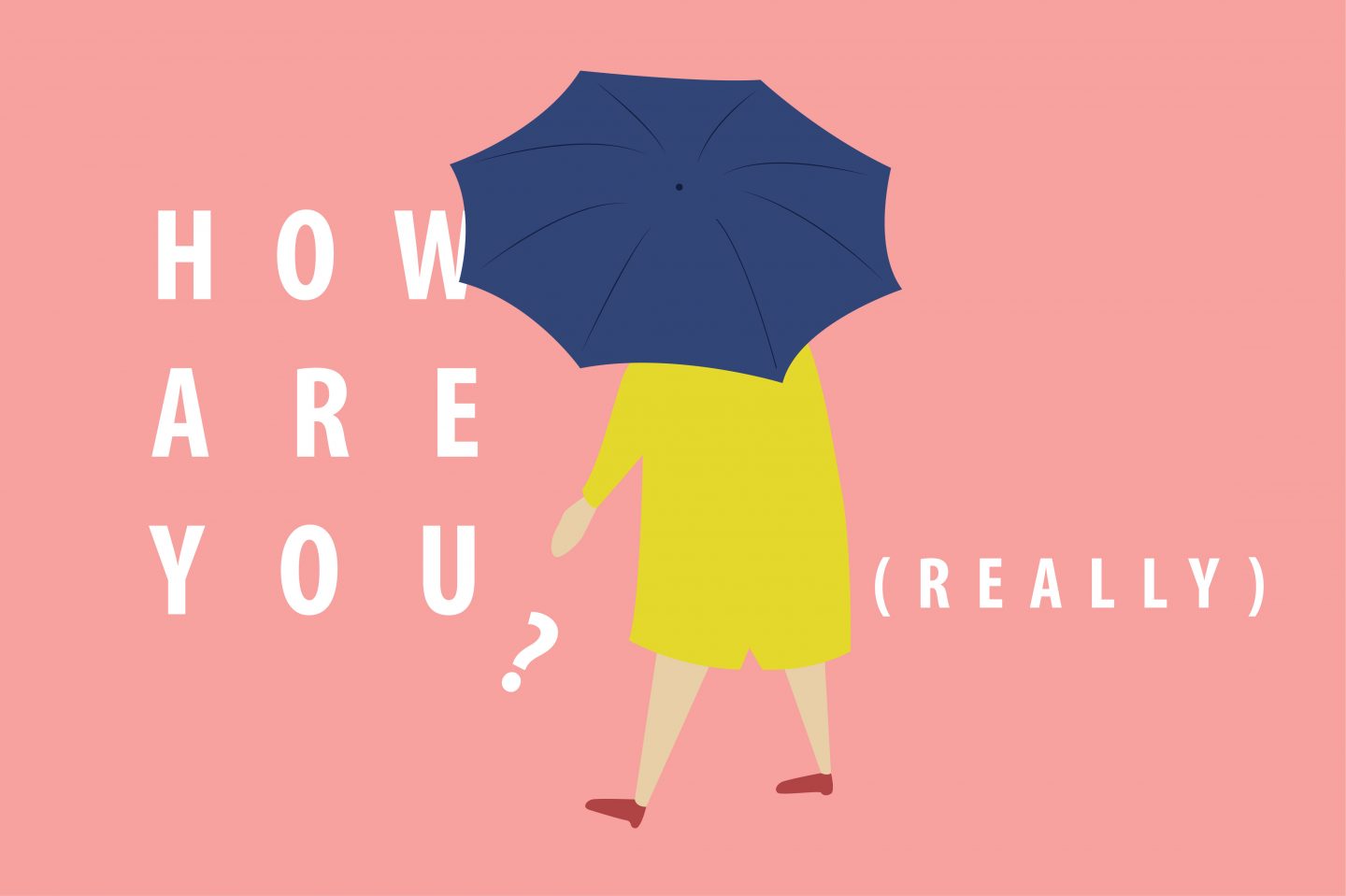It’s a rainy Sunday morning and the guy on stage is giving his usual welcome-to-church spiel and, like he does every week, he refuses to let us sit down. Before we all get comfortable in our seats, we have to greet at least three other people and/or give them a high-five.
I sigh a little sigh to myself as I psyche myself up to flash a smile and look for three people to say hi to. We get through the usual flurry of “good morning” and “hey, how are you” before we all settle down into an attentive kind of silence.
It’s only then that I hear that whisper of a thought: How many of those three people are really doing good?
Not many of us are inclined to go beyond that blip of an exchange. But if the church is meant to be a hospital for sinners, we’re supposed to be focused on the healing. So why are we, for the most part, not intentional about looking out for signs that someone is hurting?
Maybe we just can’t be bothered. We’ve got bigger things to worry about.
SO HOW ABOUT THAT WEATHER?
We shouldn’t settle for superficial encounters with our brothers and sisters. There must be more depth in our interactions; we need to go beyond meaningless platitudes, talking about the weather.
This is something we need to work on corporately and individually. The lao jiaos need to go out of the way to include people in your conversations and activities, individuals must also make the effort to join in and not isolate themselves.
For a year or so, my family was looking for a church to be rooted in. It was a struggle for me to perpetually be the new kid on the block. I experienced firsthand how a community that leans toward exclusivity can affect a newcomer who’s just trying to fit in and build meaningful friendships.
An inclusive community does not happen overnight. Inclusiveness starts from the willingness to go to an uncomfortable place.
The feeling of being ignored when you’re struggling with your demons can be devastating. This can drive you further into isolation – what you least need at a time like this.
The church is meant to be a safe space for individuals from all walks of life to share and carry each other’s burdens (Galatians 6:2), where we stand shoulder to shoulder to share the weight of others. An inclusive community.
But an inclusive community does not happen overnight. Inclusiveness starts from the willingness to go to an uncomfortable place. To express hurt and vulnerability.
To love one another (John 13:34-35, Mark 12:31), we first need to know what’s going on in each other’s life enough to know what to say – or what not to say.
WHAT MAKES AN INCLUSIVE COMMUNITY?
1. BE AWARE
Keep your eyes peeled for those who are (potentially) being left out.
Looking out for others must come from a place of empathy. We are called to be sympathetic, love one another, be compassionate and humble (1 Peter 3:8). So if you see an unfamiliar face, or someone being excluded from a conversation, reach out and include them. Bridge that gap. Speak to that brother in love (Galatians 6:1). And prepare to journey with him.
2. BE AVAILABLE
Consider others higher than yourself.
It may be painful when we ourselves are all nursing our own wounds, but we need to make sure we’re there for others, especially when they desperately need someone to be with. When we put aside our own hurts and extend our friendship to someone who needs it, it’s the modern day equivalent to us laying our life down for a brother (John 15:13).
3. BE ACCESSIBLE
Bare your heart – be vulnerable.
It’s a word that gets used cheaply. But it’s still important to be vulnerable with one another. It’s not just a simple formula of exchanging dirty secrets with someone else. It involves you mustering up the courage to invite someone to step into your mess and trusting them to journey through it with you. It is the courage to believe the other person would hold your heart as carefully as you hold theirs.
And even if they happen to drop it by accident, vulnerability doesn’t blame the other person for it.
RUNNING THE RACE ALONGSIDE ONE ANOTHER
Life is messy. People struggle violently within themselves. Many of us are incapacitated by our insecurities.
That’s why God called us to be a people committed to building each other up (1 Thessalonians 5:11), spurring one another on (Hebrews 10:24-25) as iron sharpens iron (Proverbs 27:17).
At the end of the day, we’re all on a journey to be more Christ-like. Jesus did not shun the unpopular, but instead got everybody #shook when He chose to hang around and be associated with the likes of tax collectors, prostitutes and the sick.
In the same manner, we shouldn’t let someone’s social standing get in the way of us extending the same love and friendship Jesus first offered to us.
Love creates a space where people feel safe to show their scars and bear their hearts.
What an honour it is for us to be willing vessels to offer comfort to others (2 Corinthians 1:4) and to show them what His love looks like.
Don’t grow weary in doing good, especially to those in same family of faith (Galatians 6:9-10). Before we go out there to love the people of the world, we need to be able to do the same in our own spiritual and physical homes. Love creates a space where people feel safe to show their scars and bear their hearts.
So the next time you’re in church and your pastor asks you to give your neighbour a high-five, try to find someone who is desperately avoiding eye contact. It may be a silent cry for help.
So help them.









